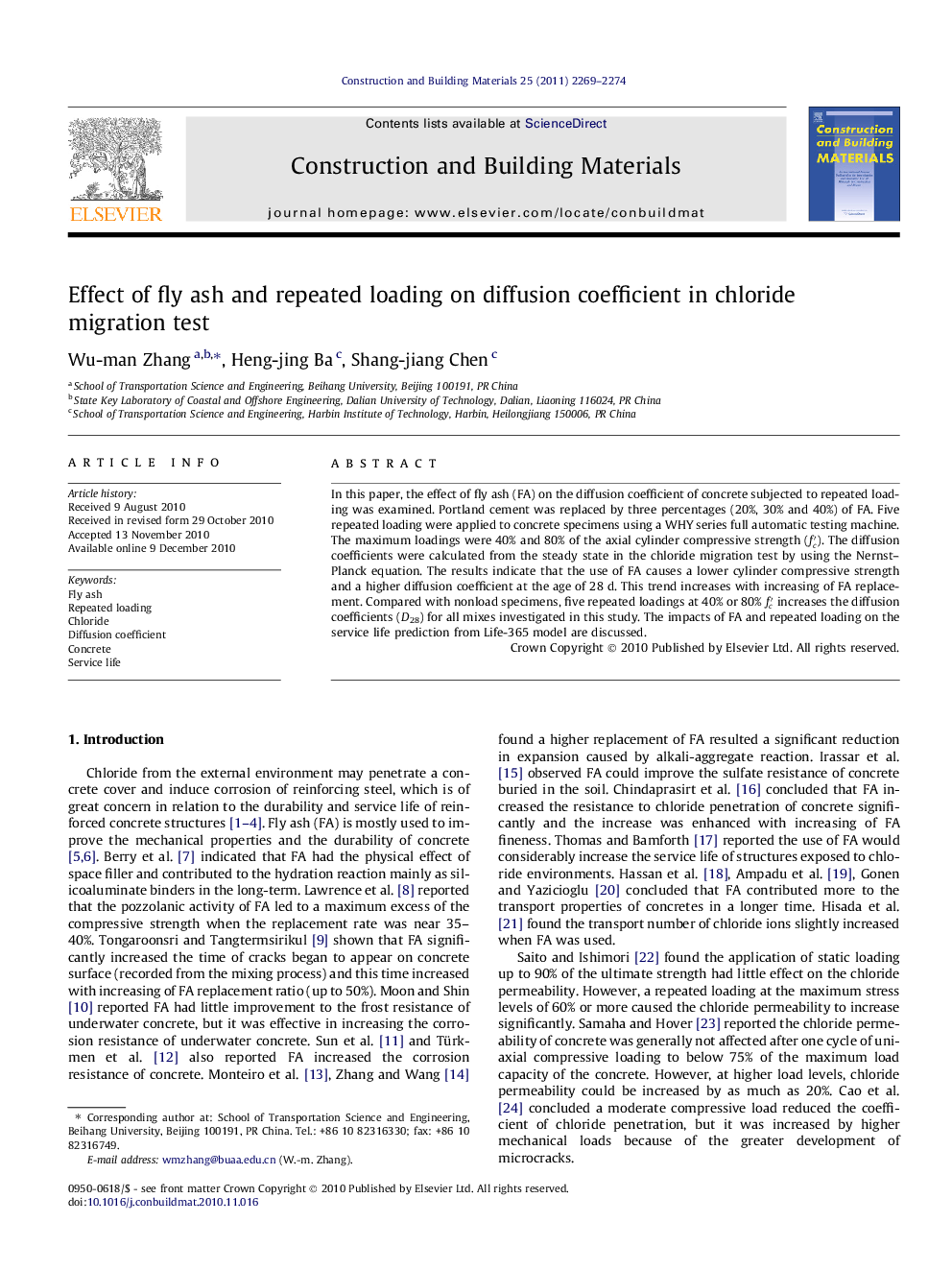| Article ID | Journal | Published Year | Pages | File Type |
|---|---|---|---|---|
| 259262 | Construction and Building Materials | 2011 | 6 Pages |
In this paper, the effect of fly ash (FA) on the diffusion coefficient of concrete subjected to repeated loading was examined. Portland cement was replaced by three percentages (20%, 30% and 40%) of FA. Five repeated loading were applied to concrete specimens using a WHY series full automatic testing machine. The maximum loadings were 40% and 80% of the axial cylinder compressive strength (fc′). The diffusion coefficients were calculated from the steady state in the chloride migration test by using the Nernst–Planck equation. The results indicate that the use of FA causes a lower cylinder compressive strength and a higher diffusion coefficient at the age of 28 d. This trend increases with increasing of FA replacement. Compared with nonload specimens, five repeated loadings at 40% or 80% fc′ increases the diffusion coefficients (D28) for all mixes investigated in this study. The impacts of FA and repeated loading on the service life prediction from Life-365 model are discussed.
Research highlights► The chloride diffusion coefficient (D28) of concrete. ► The effect of fly ash and repeated loading on D28. ► The effect of fly ash and repeated loading on the service life of concrete in chloride environments.
